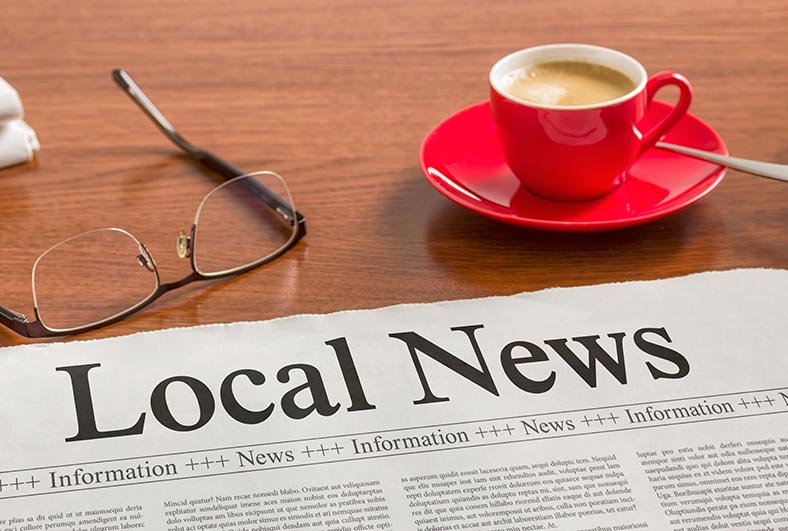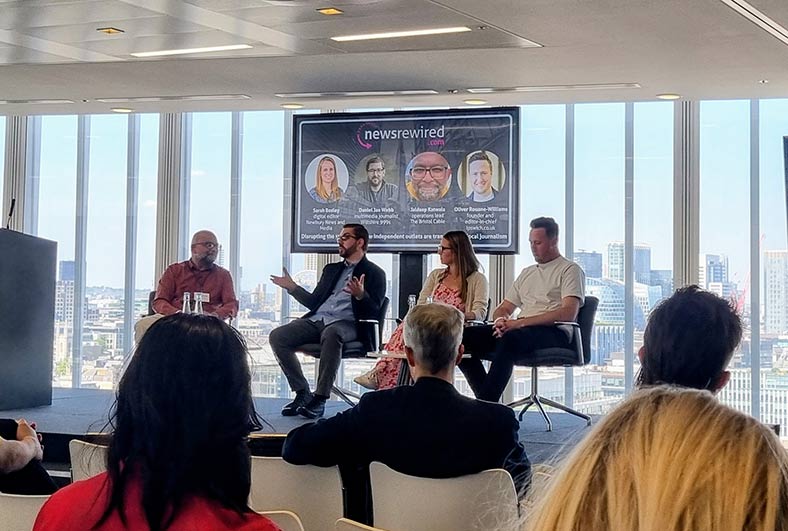Blog / Events / Journalists
Evolving local journalism: what outlets are doing in 2025

Local newspapers have been a staple of villages, towns, and cities for decades. However, with print audiences declining, people are looking at different ways to find out what’s going on in their local area. The recent Newsrewired conference featured journalists from several local outlets who shared how they are changing things up and getting positive results.

A willingness to pay
Local news outlets have often had to rely on advertising, especially if they are online only, as a way to bring in revenue. However, Sarah Bosley, digital editor at Newbury News and Media, believes ‘the mindset is shifting – people know that they need to start paying for news’.
It’s a strategy the publisher has employed at the title with all content going behind a paywall last year. The outlet now has over 3,000 paying subscribers. Plus, crucially, after the first year ‘everyone is renewing’.
Mill Media operates slightly differently, with free access to a mailing list and some longread articles. Getting more access means becoming a paid-up member. Founder Joshi Herrmann shared that the company is ‘now profitable in its first three cities and the next three are well on the way’.
He also believes that ‘there are more people willing to pay for local news’ but it’s about ‘changing the culture’. Audiences in Denmark, for example, are much more accustomed to paying for news – Lea Korsgaard, co-founder and editor-in-chief of Zetland, shared that the title has an impressive 40,000 paying subscribers.
Impactful journalism that matters to local audiences
Local news reporting can have a positive impact on communities. This is something that Ipswich.co.uk founder and editor-in-chief Oliver Rouane-Williams is looking to do at his independent outlet, with roles such as civic pride reporter, which aims to ‘champion the town and challenge people’s perceptions of Ipswich to strengthen civic pride and get people to fall back in love with the town’.
Daniel Jae Webb has also found success as owner of Wiltshire 999s which reports solely on breaking news and crime stories in the county. It came about after his photograph of a local incident went viral.
‘Loads of people were interested in it,’ shared Daniel. ‘So I started doing more and more and it developed. I think it’s of public interest and I don’t think anyone would know what’s going on without this coverage that we provide’.
Less is more
Audiences, even at a local level, can be inundated with news. This is something that Joshi at Mill Media is well aware of:
‘People nowadays have far too much information being swung at them, and the problem they have is distinguishing between the information that’s useful and important and the information that’s misleading and not important’.
That is why the team has priortised a low volume form of journalism, putting out a few stories each, focusing on quality. Joshi added that his idea was to ‘give people a small amount of storytelling that is really meaningful, stuff that creates an emotional connection, that gives them information, and the context they need to live their lives’.
Zetland Media is also running its website in a similar way, with a maximum of four or five stories each day. Lea Korsgaard said that the team is only looking to write ‘important stories that are worth telling people about, in a way that people can actually remember more than five minutes after reading’.
Switching up the business model
No two publishers will run their businesses in the same way but local outlets are increasingly switching things up as they look at different ways to bring revenue in. Alongside Newbury News and Media’s paywall, the publisher has launched ‘subscriber only events’. Mill Media operates slightly differently with a membership model, but is bringing in extra revenue via events for members also.
Daniel Jae Webb’s Wiltshire 999s is free for readers to access and makes money via ads on its website, but also has a large following on TikTok – another revenue stream. Ipswich.co.uk is also free to read but has no advertising and asks readers to support its journalism with a yearly fee. Its business model also operates slightly differently:
‘We generate our revenue through a partnership model,’ said Oliver. ‘I was adamant from an early stage that our business would be unashamedly set up to serve local businesses and a local market.
‘I spent three years heading up growth monetisation at News UK and that firsthand experience makes you realise how many challenges that creates when you’re trying to find a type of journalism that has the kind of impact you want it to have’.
Keep up-to-date with what’s happening in the UK media industry by signing up to the weekly Media Bulletin here, published every Tuesday morning.